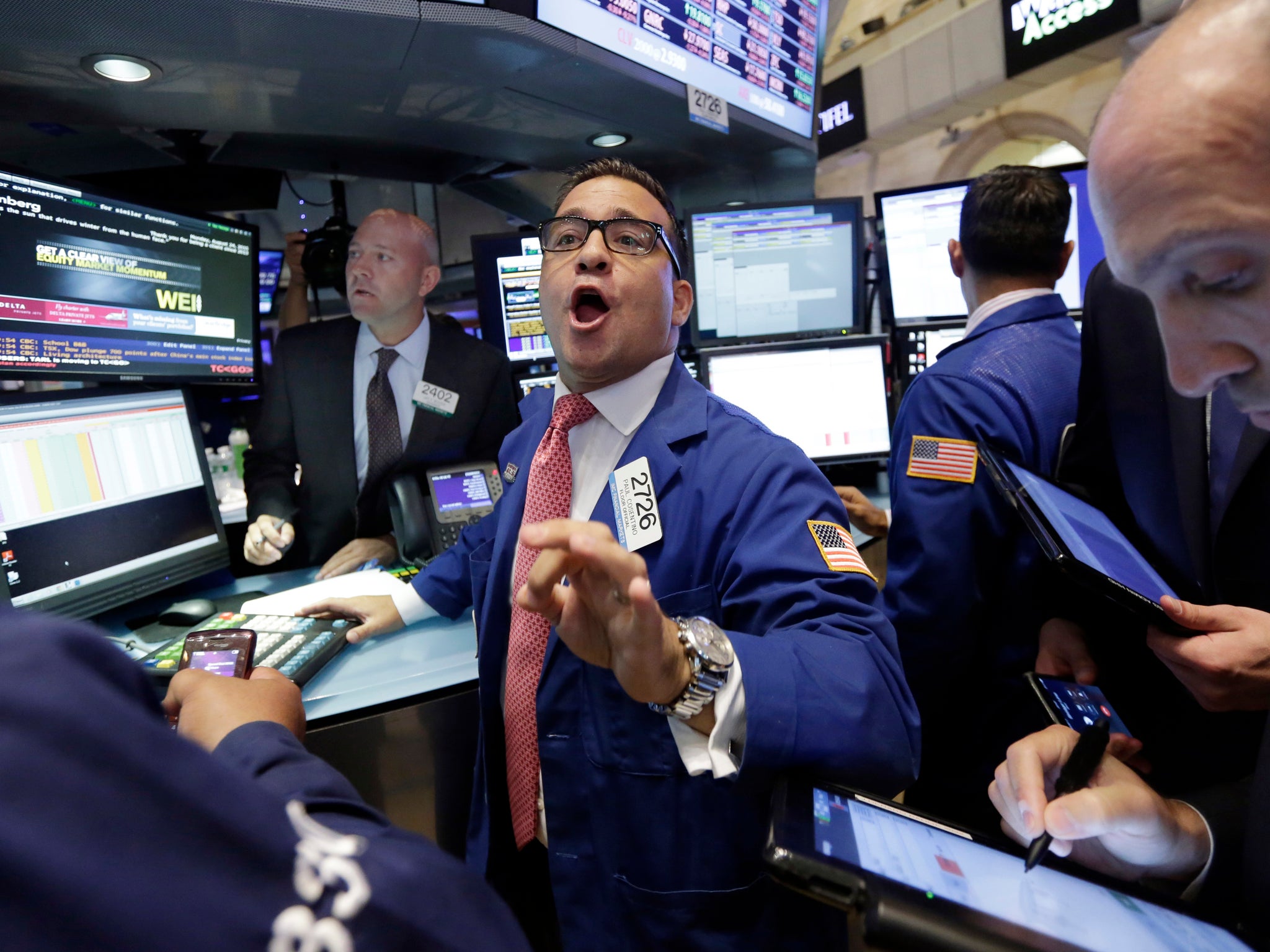Wall Street rallies as policy makers shift away from rate rise
However, Fed's head of rate-setting committee says it's 'important not to overreact to short-term market developments'

A 4 per cent surge on Wall Street in late trading capped another roller-coaster day for global stocks yesterday, after a key member of the US Federal Reserve gave the strongest hint yet that US interest rates will stay at historic lows next month.
William Dudley, the head of the New York Federal Reserve and a hawkish member of the US central bank’s rate-setting committee, encouraged hopes that the US would put off hiking rates at next month’s meeting, saying a September rise “seems less compelling to me than it was a few weeks ago”.
However, noting that it was “important not to overreact to short-term market developments”, he added: “I really do hope we can raise interest rates this year… But let’s see how the data unfolds before we make statements about when that might occur.”
After several sessions marked by wild intraday swings in the markets, yesterday saw slightly less dramatic moves, with Wall Street’s Dow Jones ending up 619 points, or 3.9 per cent, at 16,285.5, despite briefly paring half of its gains mid-session. In London, the FTSE 100 ended what traders dubbed “Wobbly Wednesday” down 1.68 per cent at 5,979.2, taking the blue-chip index’s losses this week to 3.4 per cent after a 4.7 per cent fall on “Black Monday” and 3.1 per cent gain on “Turnaround Tuesday”.
However, traders warned that markets around the world could remain volatile into September amid continuing worries over China.
Earlier in the day, Beijing’s attempts to boost confidence by cutting interest rates on Tuesday appeared to have foundered, with the Shanghai Composite index closing down 1.3 per cent after it failed to hold on to early gains.
Jasper Lawler at CMC Markets said: “The People’s Bank of China appears to be reluctantly easing policy any time there’s a drop in share prices. The net effect is that markets clamour for more stimulus while at the same time losing faith it will work.”
This week’s market turmoil has prompted calls for the Fed and the Bank of England to hold off on hiking interest rates, which had been expected to start climbing this autumn as the two economies strengthen. Some have even suggested the Fed should return to quantitative easing to steady the market, but Mr Dudley said: “I’m way far away from thinking about quantitative easing”.
Analysts also believe part of the reason for the huge share price swings seen this week was high levels of computer-generated trading, where algorithms are used to generate thousands of sales in miliseconds, in the traditionally quiet month of August.
David Buik, the veteran market commentator at Panmure Gordon, said the markets were likely to calm down in September when City and Wall Street traders returned to their desks.
He explained: “It would be folly to underestimate the influence of algorithm and programme trading in modern era trading… If a machine tells you to sell, if the market lacks liquidity, the falls will be gargantuan.”
Subscribe to Independent Premium to bookmark this article
Want to bookmark your favourite articles and stories to read or reference later? Start your Independent Premium subscription today.

Join our commenting forum
Join thought-provoking conversations, follow other Independent readers and see their replies